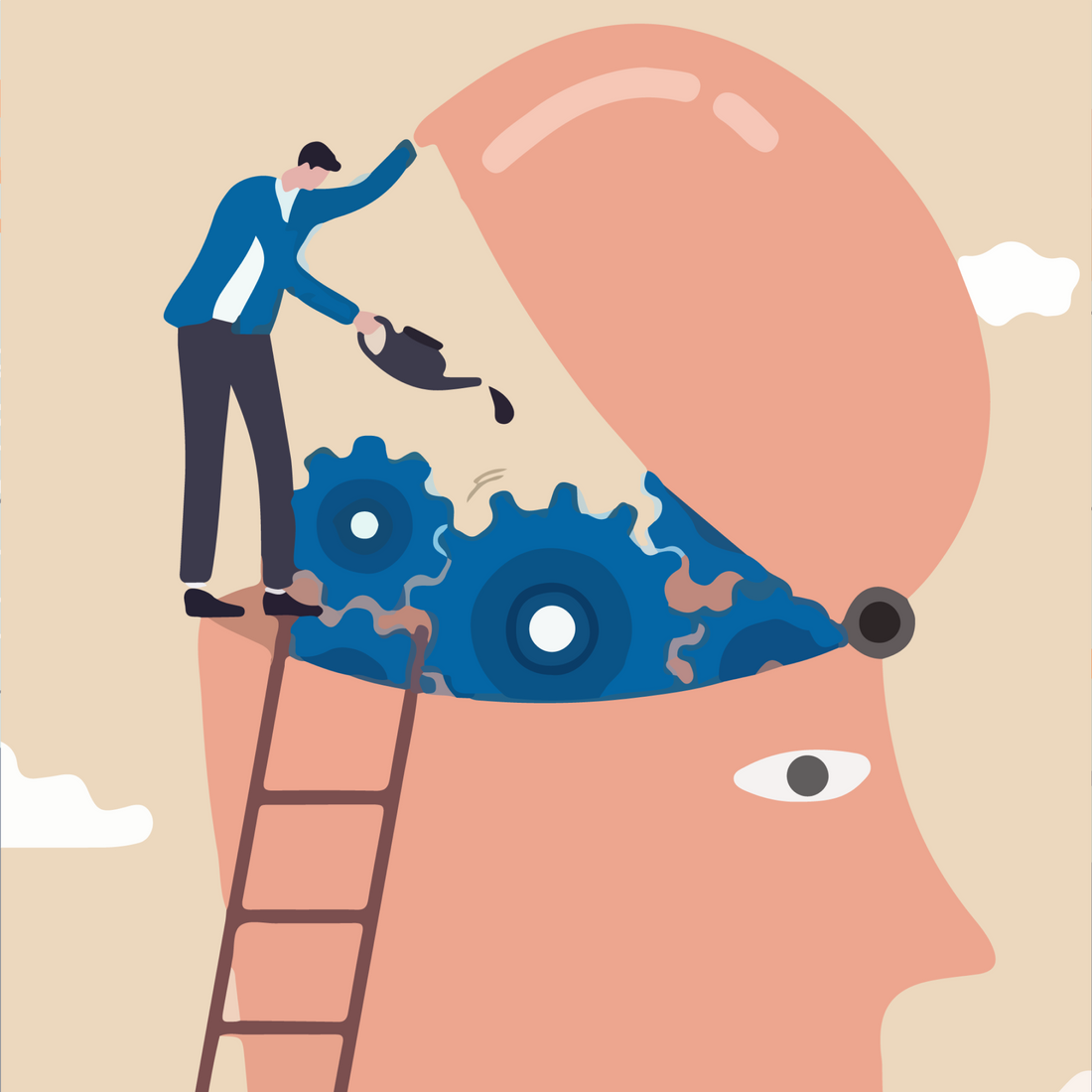Discover Related Products
Now explore supplements designed to support Longevity, Gut Health & Cellular Vitality.
CITOZYM - Support Natural Detox, Immune and Longevity Support
Enhancing Brain Performance: Evidence-Based Strategies

The human brain, a complex and fascinating organ, plays a crucial role in every aspect of our lives. Scientific research has explored various ways to enhance brain performance, offering practical and evidence-based strategies. This article will examine different techniques that can help boost cognitive functions, improving memory, attention, and learning capacity.
1. Nutrition and Supplements
A balanced diet is essential for maintaining brain health. Omega-3 fatty acids, found in fish, nuts, and flaxseeds, are crucial for the functioning of neuronal cell membranes. Studies show that omega-3 intake can improve memory and cognitive abilities (1).
Antioxidants, found in fruits and vegetables, have properties that protect the brain from oxidative stress and enhance memory (2). Curcumin, a component of turmeric, has also shown potential cognitive benefits due to its neuroprotective properties (3).
Enzyme substrates are equally crucial for proper brain function. Enzymes play a vital role in numerous biochemical reactions necessary for brain metabolism. B vitamins, such as B6, B12, and folic acid, are key cofactors in many of these reactions. For example, vitamin B6 is involved in the synthesis of neurotransmitters like serotonin and dopamine, essential for mood and cognitive function (4).
Vitamin B12, along with folic acid, is critical for the metabolism of homocysteine, an amino acid that, if accumulated, can be neurotoxic and increase the risk of cognitive decline (5). Therefore, adequate intake of these vitamins is essential for maintaining optimal cognitive functions.
2. Physical Exercise
Regular physical activity is a powerful ally for the brain. Aerobic exercises, such as running or swimming, increase blood flow to the brain and promote neurogenesis, the formation of new nerve cells (6). An analysis of clinical studies confirms that physical exercise improves executive functions, memory, and information processing speed 7.
Physical exercise also stimulates the release of neurotrophins, such as brain- derived neurotrophic factor (BDNF), which supports the survival of neurons and the growth of new synapses (8). This growth and strengthening of synaptic connections are crucial for learning and memory.
3. Cognitive Stimulation
Cognitive stimulation through challenging mental activities can enhance brain performance. Crosswords, logic puzzles, and learning new skills stimulate brain plasticity, the brain's ability to adapt and form new neuronal connections (9). Another interesting approach is computerized cognitive training, which has been shown to improve specific cognitive functions such as working memory and processing speed (10). These programs are designed to challenge the brain in specific ways, promoting adaptation and improvement of cognitive abilities.
4. Quality Sleep
Quality sleep is essential for memory consolidation and brain regeneration. During sleep, the brain clears accumulated toxins and strengthens neuronal connections (11). Sleep deprivation, on the other hand, can severely impair cognitive functions, reducing attention, memory, and decision-making abilities (12).
Sleep, particularly REM sleep and deep sleep stages, plays a critical role in consolidating declarative and procedural memories. Deep sleep is associated with the consolidation of declarative memory (facts and events), while REM sleep is crucial for procedural memory (skills and abilities) (13).
5. Stress Management
Chronic stress can negatively affect brain health, damaging neuronal structures and reducing cognitive abilities (14). Stress management techniques such as meditation, yoga, and deep breathing have been shown to improve mood and cognitive function (15).
Mindfulness meditation, in particular, has been shown to increase gray matter density in brain areas associated with memory, learning, and emotional regulation (16). Additionally, yoga combines physical exercise with meditation, offering both physical and mental benefits, improving flexibility, reducing stress, and enhancing cognitive function (17).
6. Continuous Learning
Continuous learning and acquiring new skills are essential for maintaining brain plasticity. Learning a new language, playing a musical instrument, or engaging in a new hobby stimulates different brain areas, promoting the formation of new neuronal connections (18).
7. Enriched Environment
A stimulating and rich environment can significantly contribute to improved cognitive functions. Exposure to new situations, people, and intellectual challenges can increase neuroplasticity and enhance cognitive abilities (19).
8. Cardiovascular Fitness
Cardiovascular fitness has a significant impact on brain health. Studies show that a healthy heart can efficiently pump oxygenated blood to the brain, improving cognitive functions and reducing the risk of cognitive decline (20). Regular cardiovascular exercise, such as walking, running, or cycling, can improve cognitive function in the long term.
9. Social Interactions
Positive social interactions are associated with better cognitive function and a reduced risk of dementia. Participating in social activities and maintaining active social relationships can stimulate the brain, enhancing memory and other cognitive skills (21). Socialization also helps reduce stress, another factor that can negatively affect brain health.
Conclusion
Enhancing brain performance is achievable through a combination of adequate nutrition, physical exercise, cognitive stimulation, quality sleep, stress management, continuous learning, an enriched environment, cardiovascular fitness, and social interactions. By adopting these evidence-based strategies, it is possible to boost cognitive functions and promote long-term brain health.
References







No comments